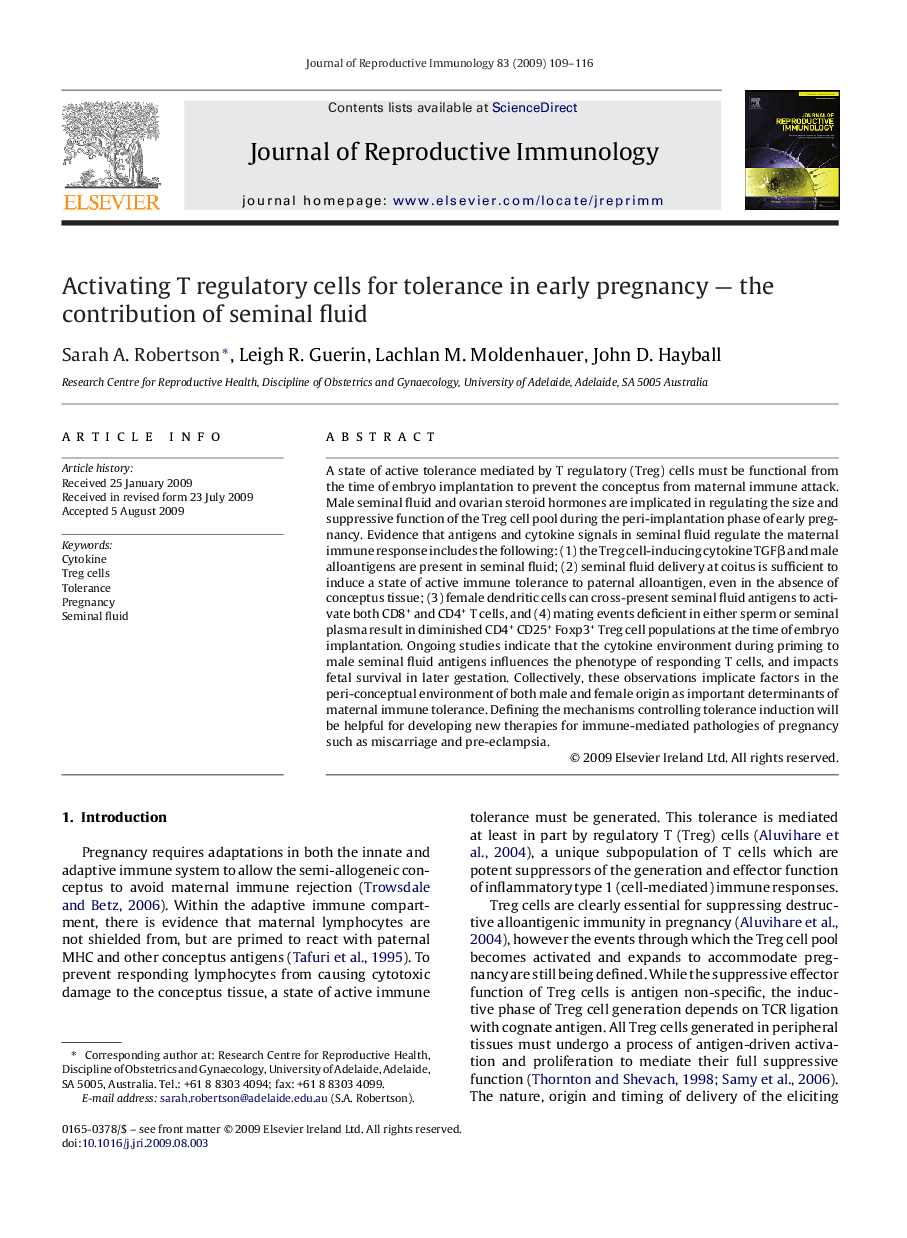| Article ID | Journal | Published Year | Pages | File Type |
|---|---|---|---|---|
| 3961623 | Journal of Reproductive Immunology | 2009 | 8 Pages |
A state of active tolerance mediated by T regulatory (Treg) cells must be functional from the time of embryo implantation to prevent the conceptus from maternal immune attack. Male seminal fluid and ovarian steroid hormones are implicated in regulating the size and suppressive function of the Treg cell pool during the peri-implantation phase of early pregnancy. Evidence that antigens and cytokine signals in seminal fluid regulate the maternal immune response includes the following: (1) the Treg cell-inducing cytokine TGFβ and male alloantigens are present in seminal fluid; (2) seminal fluid delivery at coitus is sufficient to induce a state of active immune tolerance to paternal alloantigen, even in the absence of conceptus tissue; (3) female dendritic cells can cross-present seminal fluid antigens to activate both CD8+ and CD4+ T cells, and (4) mating events deficient in either sperm or seminal plasma result in diminished CD4+ CD25+ Foxp3+ Treg cell populations at the time of embryo implantation. Ongoing studies indicate that the cytokine environment during priming to male seminal fluid antigens influences the phenotype of responding T cells, and impacts fetal survival in later gestation. Collectively, these observations implicate factors in the peri-conceptual environment of both male and female origin as important determinants of maternal immune tolerance. Defining the mechanisms controlling tolerance induction will be helpful for developing new therapies for immune-mediated pathologies of pregnancy such as miscarriage and pre-eclampsia.
